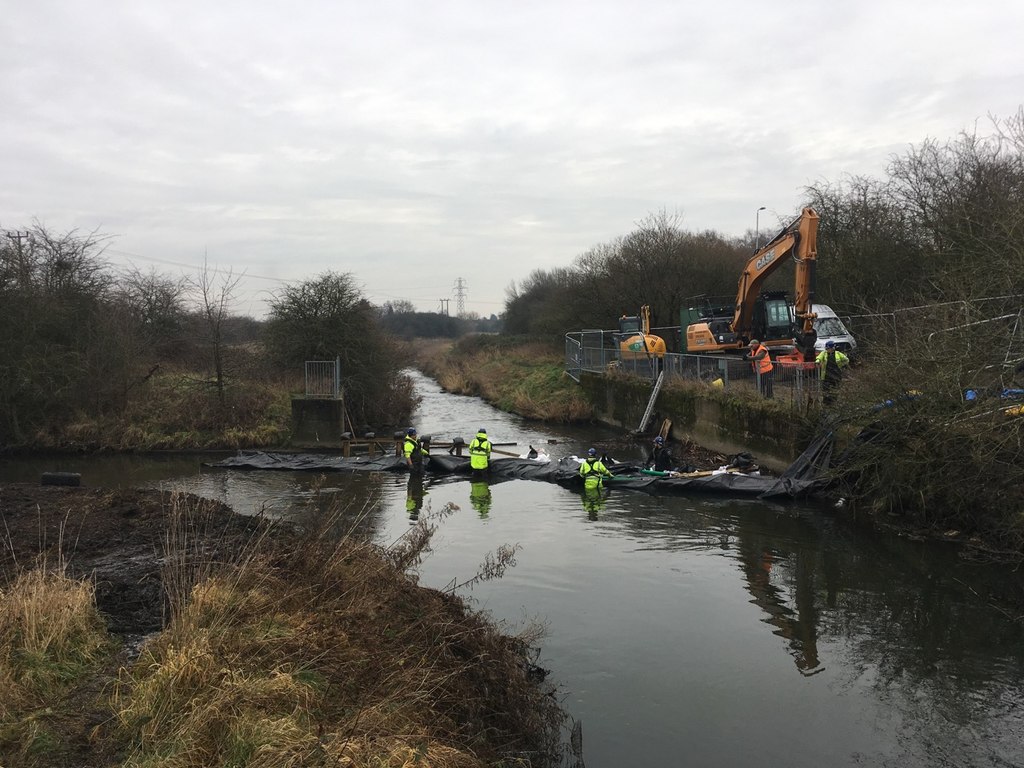The number of checks on environmental standards carried out by UK government agencies has plummeted in recent years, leading to an “enforcement gap”, a report has warned.
Analysis published this week by Unchecked, a newly-formed campaign coalition, highlights the impact government cuts have had on regulators’ capacity to enforce a range of laws, from air quality to fire safety.
Comparing data on ten key public bodies between 2009/10 and 2016/17, the report finds that real terms funding fell by an average of 50 percent, with the number of full-time staff dropping by 30 percent over the same period.
Unchecked founder Emma Rose told DeSmog the funding cuts risk undermining UK efforts to tackle climate change and that this could be compounded by Brexit: “The EU Commission’s enforcement powers – which can be used if Member States fail to fulfil their climate change obligations under EU law – may well not be recreated in the UK post-Brexit.”
Enforcement of climate change legislation is currently excluded from the remit of the proposed Office for Environmental Protection, which would replace the oversight of the European Commission, while the Committee on Climate Change has only an advisory role, leading to a potential “governance gap”.
Rose said that starving regulators of resources was part of a “wider deregulatory agenda, adopted by successive governments, and championed by a number of right-wing thinktanks and media titles”.
“The erosion of regulatory capacity has not come about by accident, but by design. It is highly political, a practical way in which ‘over-regulation’ can be dealt with.”
Prosecutions tumble
Prosecutions of businesses by the Environment Agency fell by 80 percent between 2009/10 and 2016/17, the second biggest drop the report found among different types of “enforcement activity”.
Of the watchdogs examined, Natural England, the government’s advisor on biodiversity and conservation, saw the largest budget cut, with 66 percent of its funding removed. Nearly half of the UK’s Sites of Special Scientific Interest have not been checked by the watchdog over the past six years, the report notes.
Whistleblowers at Natural England, which sits under the Department for Environment, Food & Rural Affairs, told the Guardian in January that thousands of environmentally important sites were being put under threat by the cuts.
Speaking to DeSmog, Labour Shadow Environment Minister Dr David Drew said morale at the two agencies is “unfortunately rock bottom, with industrial action and staff leaving in droves”.
Eloise Scotford, Professor of Environmental Law at University College London, said the cuts were “particularly biting” in the area of air quality, where “local authorities are expected to transform our cities with diminishing funds and resources”. When it came to meeting climate change targets, which the UK is currently on track to miss, however, this was more a result of a “woeful lack of policies” from government, she said.
‘A perfect storm’
Scotford told DeSmog the cuts to regulators’ budgets risked creating a “perfect storm” in combination with Brexit: “As we leave the EU, we will lose the constitutional entrenchment of a high level of environmental protection and the oversight of the Commission to check that the UK government is upholding environmental standards and commitments.”
Rose agreed that Brexit could further worsen the situation, saying:
“Business lobbies are seizing the opportunity to call for a weakening of ‘burdensome’ regulations in the name of increasing trade, and with the pressure on to get trade deals done, there is a risk that the UK accepts the lowest regulatory standards available.”
Responding to the report, a spokesperson from the Department for Environment, Food & Rural Affairs said:
“Our ground-breaking 25 Year Environment Plan sets ambitious goals for nature and biodiversity in England to improve our precious environment.
“We are committed to working with independent regulators and ensuring they have the resources to protect and enhance our natural environment for future generations.”
Updated 23/08/2019 to include quote from Labour MP David Drew
Image credit: David Lally/Geograph/CC BY–SA 2.0
Subscribe to our newsletter
Stay up to date with DeSmog news and alerts







